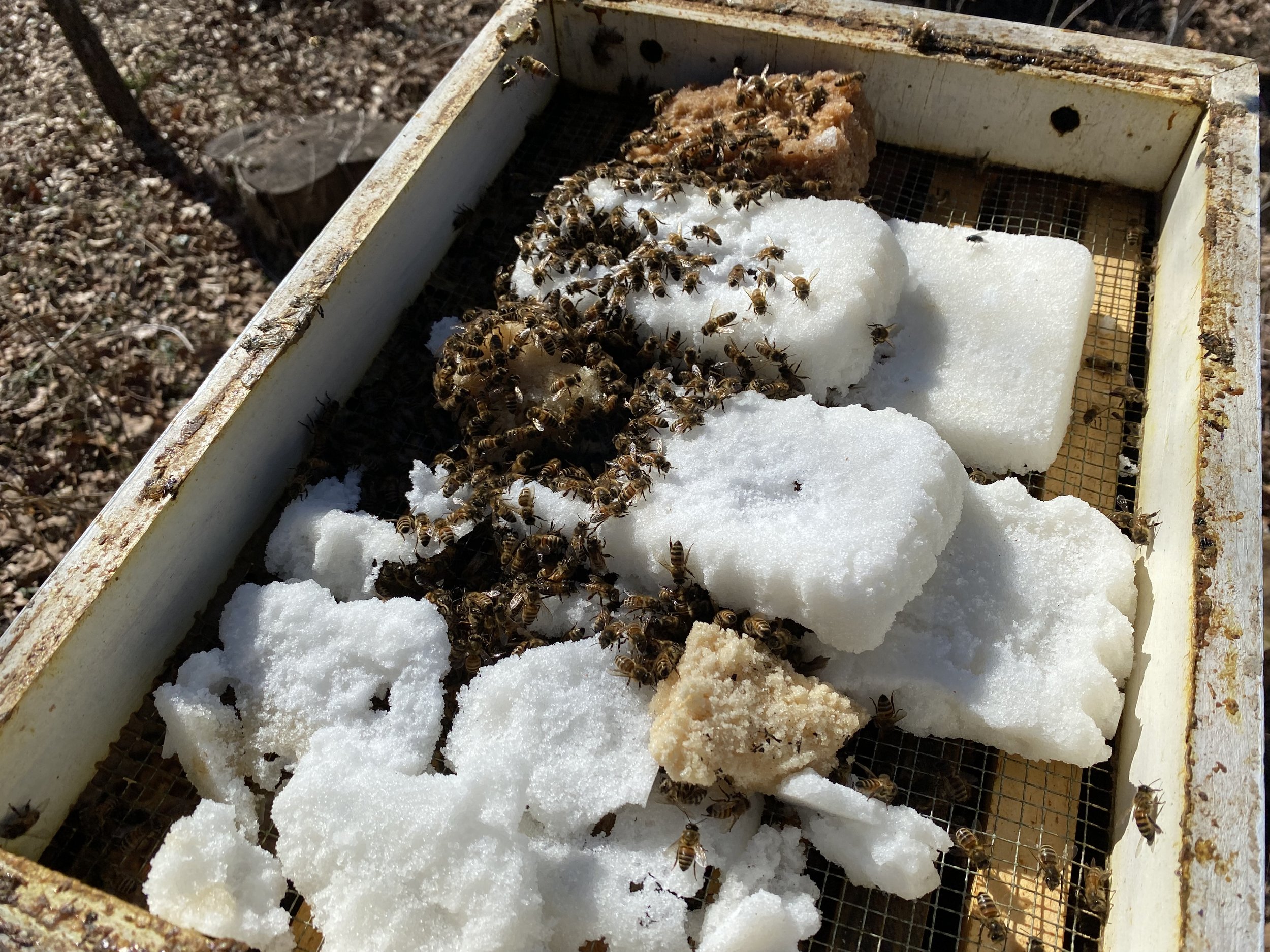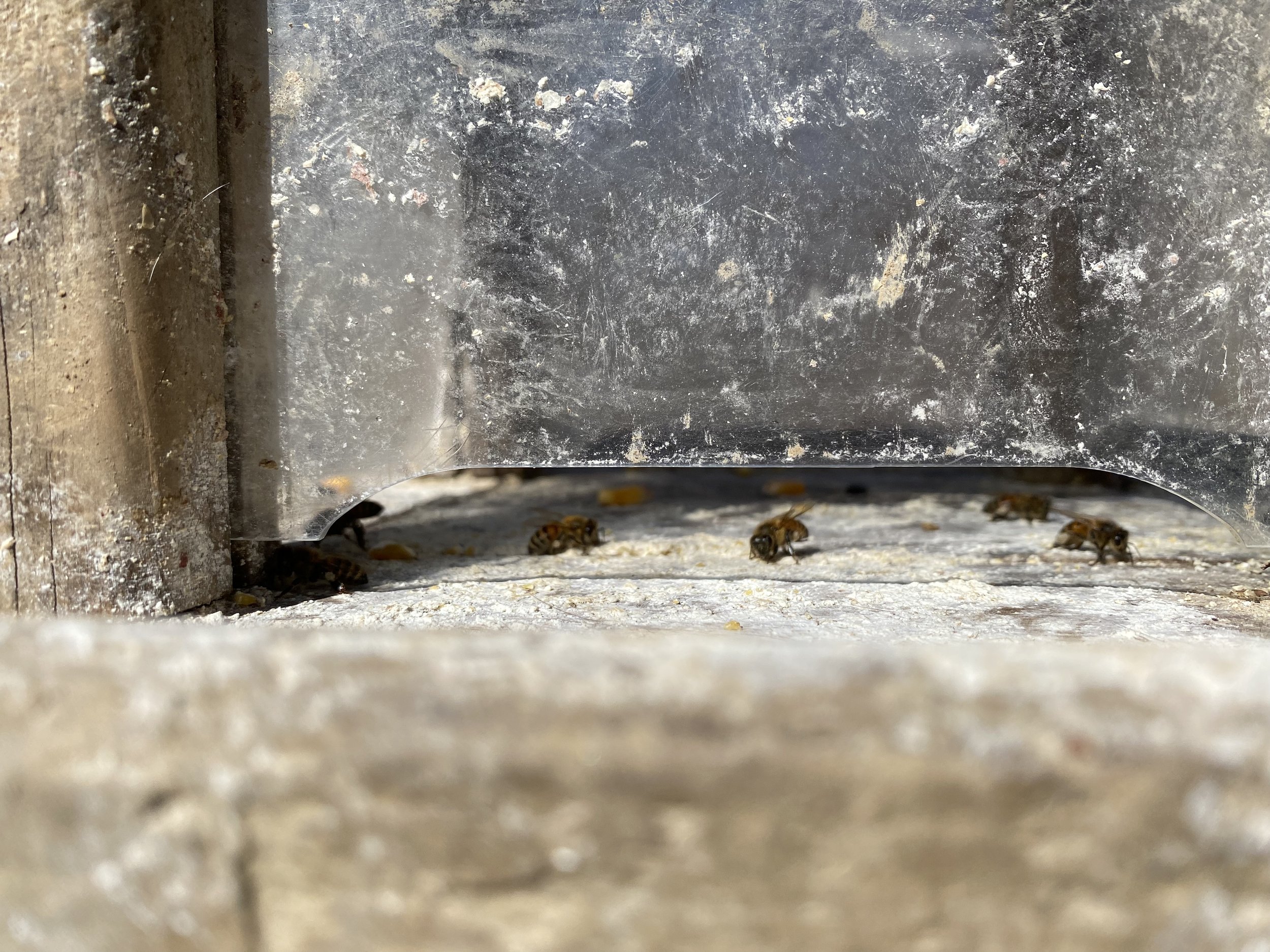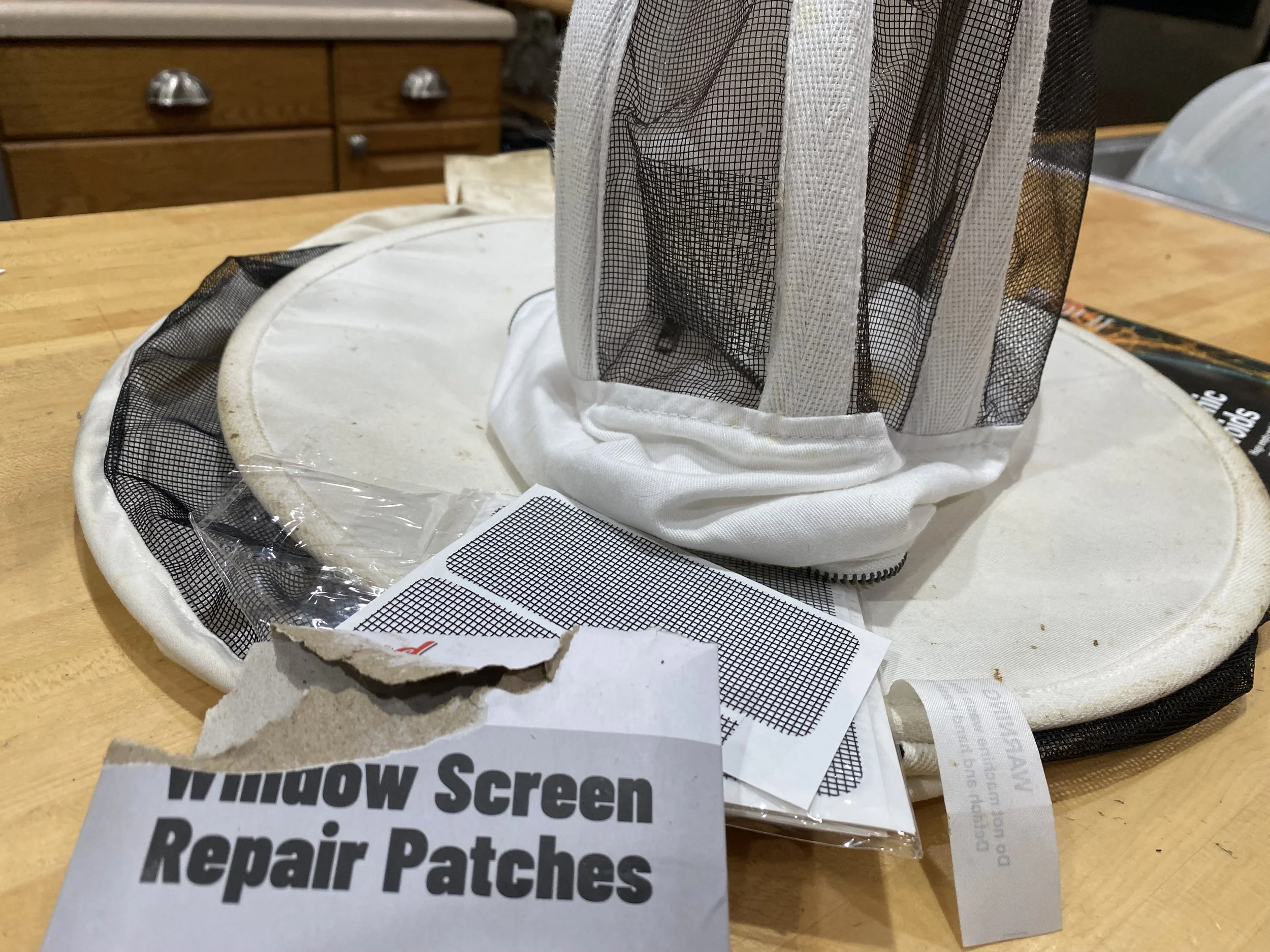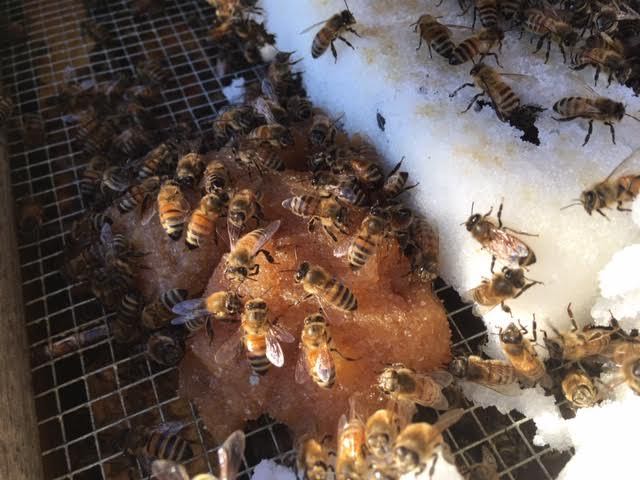Pros and Cons of Pollen Substitute
/The darker sugar pieces have pollen substitute as one of the options to safely feed bees. (Charlotte Ekker Wiggins photo)
Pros and Cons of Pollen Substitute
Mid-February in mid-Missouri we usually have a break in winter with sunny days in the 60s. Those warm days prompt bees to be out scouting for pollen, the protein nurse bees consume to produce baby food, or royal jelly.
When I first started keeping bees, open feeding pollen substitute was a regular practice during these warm days. Not any more. Open feeding is now highly discouraged.
So should you feed your bees pollen substitute during these warm February days and if so, how do you do it in the safest way?
The bottom line is you don’t want to get your bees ahead of nature’s schedule so best to go slow.
Bees this time of year will look for pollen even in bird feeders. (Charlotte Ekker Wiggins photo)
And if you don’t want to feed your bees pollen substitute, it doesn’t mean they won’t go looking for some. I can count on seeing my bees rummaging through bird food in my bird feeders with cracked corn in the mix. That’s a sure sign the queen bees in my apiaries are starting to lay eggs.













